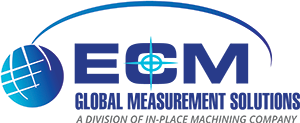
Course Description:
The objective of the CMS Level-One Certification Course is to help prepare the student for the Level One examination. The learning will be provided in the form of a presentation where discussion will be a primary focus. Question and answer sessions will take place during the course to ensure knowledge and understanding.
More About This Course
A Preparatory Course designed to assist and inform students in the topics covered within the Coordinate Measurement Society’s (CMS) Level-One Certification for 3D Metrology. This course is a 2.5 day class which will review the five key knowledge areas in the exam. On the afternoon of the third day, Students can take the Exam online at ECM headquarters in Topsfield, MA. ECM has been approved by the CMS as a certified proctor site for the exam. If your company would prefer to have our training and proctor services travel to your facility – no problem, ECM can accommodate!
Although it is not required to take the CMS Certification Exam after the training, ECM recommends that you register for the Exam online to begin the acceptance process. All applicants can register by downloading the following application form.
Additional costs apply for exam registration.
*By clicking the button below, you will be routed to the Coordinate Metrology Society website where you will continue your application process.
Apply To Become a Certified MetrologistThe Power of CMS Certification
Lukasz Turolski, VP of Engineering Services for ECM and Certified Metrologist talks about the importance of becoming certified and the difference it has made in his career as well as his credibility when bidding jobs for ECM. Visit https://www.cmsc.org/professional-certification-for-metrologists for more information.
The course reviews the five broad areas of knowledge considered in the test
Basic principles in interpreting engineering documents.
Effects of equipment and environment on measurement.
Factors in establishing a measurement and documentation plan
Measurement Operations
Ethics and Analysis
Course Outline
Introduction
Fundamental Measurement – A
- Measurement Principles (Instruments, Traceability, Uncertainty, Good Practice)
- Accuracy and Precision
- Traceability (and a brief History of measurement standards)
- Units (Metric and Imperial)
- Measurement Uncertainty
- Effects on the Measurement Result (Planning, Instrument Influence, Environment
Introduction to Dimensioning
- Fundamental Drawing Practices (1st and 3rd angle)
- GD&T Part 1 (Standards, Types, Feature Control Frames, Datums,)
- Form Tolerances (Circularity (Roundness), Straightness, Flatness, Cylindricity, Profile)
- Location Tolerances (Position (RFS, MMC))
GD&T Part Two
- Location Tolerances (Concentricity, Symmetry)
- Orientation Tolerances (Parallelism, Perpendicularity, Angularity)
- Runout Tolerances (Circular, Total)
- Profile Tolerances (Line, Surface)
Measurement Uncertainty Procedure (Sources, Estimating and Calculating)
Process Control – A (Prevention Philosophy, Variables, Attributes, Histograms, Control Chart)
Coordinate Measurement
- Instruments
- Coordinate Systems
- Point Distribution
- Angled Surfaces
- Constructed Geometry
- Distance and Angles
- Sensors and Probes
- General Measurement Strategies
- Work Holding
- Alignments
Ownership
- Circular Runout
- Total Runout

